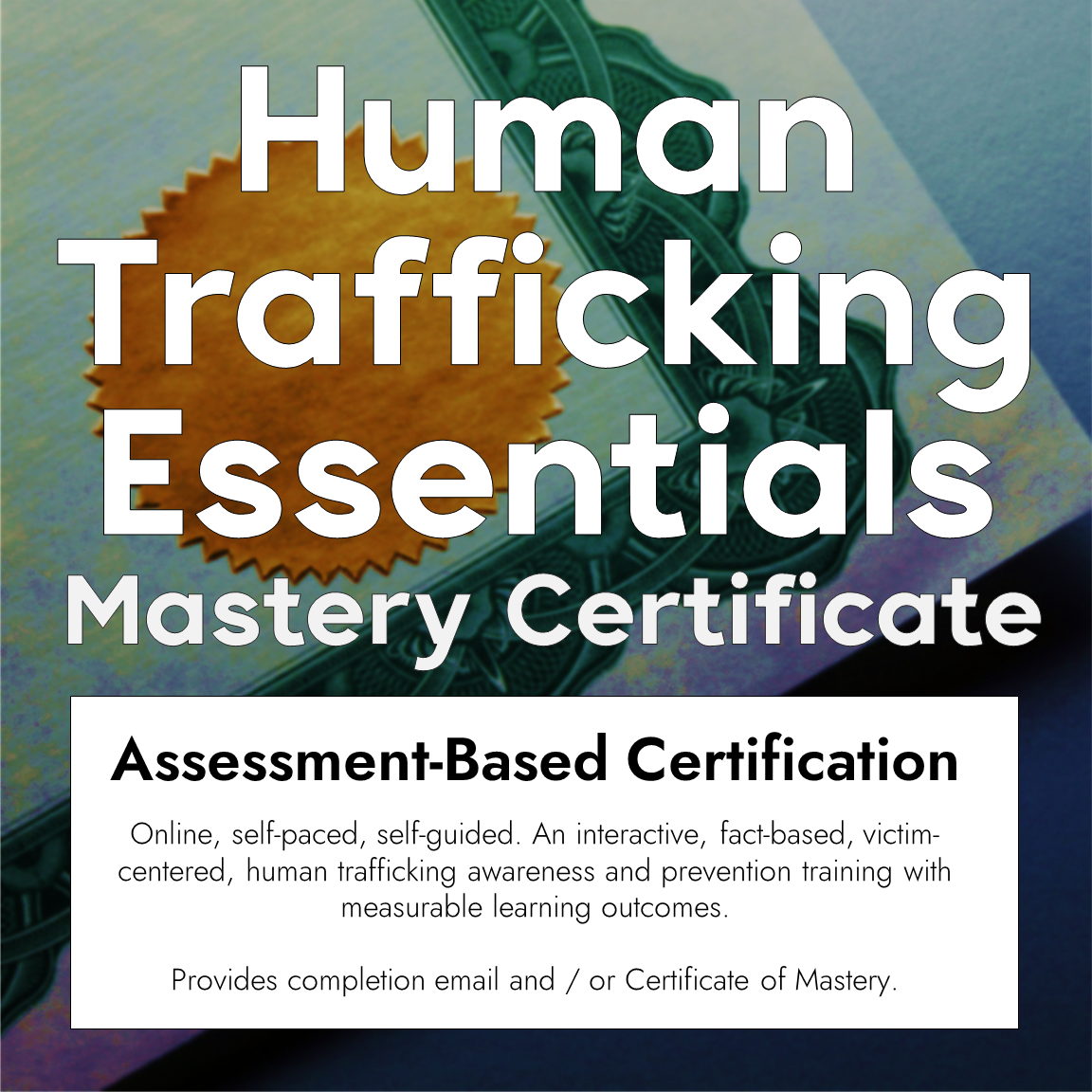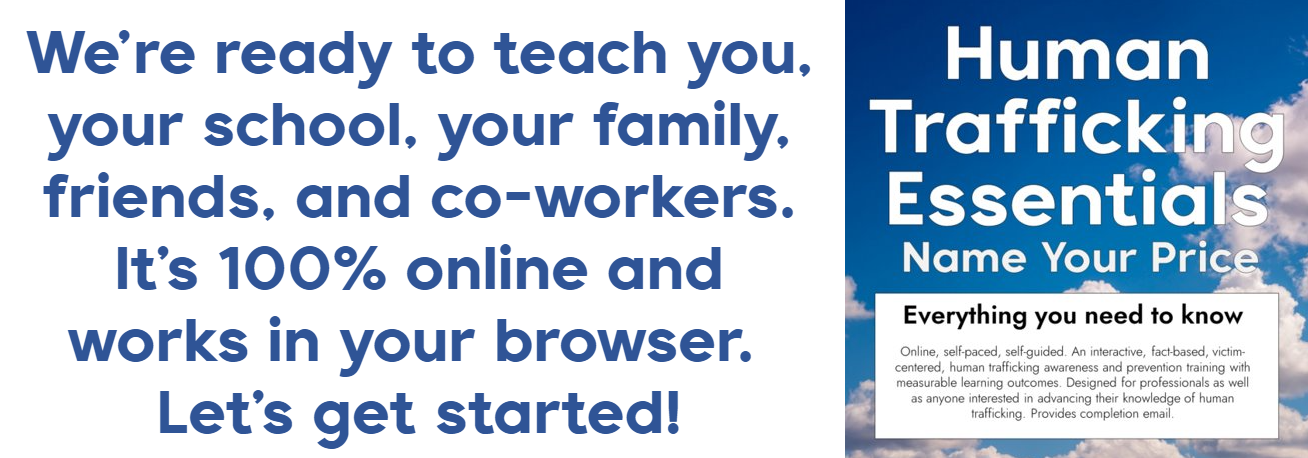All third-party human trafficking tips should be reported to law enforcement
Editor's note: we are presenting this so you can understand there is a debate. What do YOU think?

Since its creation in 2007, the National Human Trafficking Hotline has connected concerned citizens, trafficking victims, and local law enforcement in a concerted national effort to end human trafficking and help its victims find the pathway to recovery. But the hotline has recently been rendered ineffective by the very organization chosen to operate it: Polaris.
Unless Congress acts to restore the hotline to its stated function and purpose, states will be forced to leave this national effort and begin again in isolated state actions. Traffickers would like nothing more.
For years, states and organizations, such as Truckers Against Trafficking, have spread the hotline number to engage the general public in a sort of “see something, say something” campaign against trafficking. The hotline would share the tips with local law enforcement who could use this information to disrupt trafficking operations and recover victims.
This intelligence is vital to stopping trafficking. What may seem like a single, even insignificant tip from a concerned citizen can end up being the linchpin in an investigation that takes down a trafficking ring and gets its victims to the safety of shelters and service providers who help them put their lives back together.
But it recently came to our attention that Polaris, which operates the hotline, is no longer reporting third-party tips of adult trafficking to local law enforcement. Since the fall of 2021, when we first discovered this devastating change of policy, we have attempted to engage Polaris in a discussion about the importance of going back to its well-advertised function as a tip line.
States and organizations across the country once considered Polaris an indispensable partner in the fight to end trafficking. But every attempt to reason with them has been inexplicably resisted.
We were first told that our understanding was wrong and there had been no change in policy. Then we were told that the hotline was transitioning to a pure victim service program and would no longer be working with third-party tips. And now we find Polaris actively spreading misinformation that we are requesting they turn over victims to law enforcement.
Let us be crystal clear here: From the beginning, the 36 state attorneys general who have written to Polaris have asked them only to resume sending third-party tips from concerned citizens to local law enforcement. These tips help us disrupt trafficking operations and connect victims to the help they need.
We recognize that sometimes victims call the hotline themselves and may not be ready to make those connections. Trafficking involves manipulation and control in the most vile of ways. Most trafficking victims do not even identify as victims. They believe they are in a relationship with their trafficker. It takes a lot to help lead someone who is being trafficked to safety and recovery. We get that, and we are not asking Polaris to report calls from victims who say they do not want their call reported.
But we are asking them to send us the tips they get from the trucker who sees suspicious behavior on the road, the flight attendant who notices something unusual in the airport, the front desk clerk who sees something that does not make sense at their motel, or the citizen who sees the same woman being abused at the corner market week after week after week. Those tips matter. Reporting those tips can save lives.
By its own account, Polaris operates the hotline to, among other things, “take tips of suspected human trafficking from community members.” The Office on Trafficking in Persons website specifically notes that the hotline “takes tips about potential situations … and facilitates reporting to specialized human trafficking task forces, federal authorities, local law enforcement, and service providers throughout the country.”
Since its inception, the hotline has provided more than 15,000 tips to law enforcement, and Polaris itself reports that its most frequent request on human trafficking cases is to “Report a Trafficking Tip.” According to its own statistics, of the 10,360 cases identified by the hotline in 2021, 6,546 were from citizens reporting a suspected trafficking situation and only 3,284 were calls requesting service referrals.
Polaris's new policy is a major shift that contravenes one of Congress's intended functions of the hotline and disrupts the federal-state partnership to end human trafficking and help its victims. We have attempted to reason with Polaris to no avail. Congress must step in and include language in this year's appropriations bill that clarifies for Polaris that third-party tips should be shared with state partners. Congress should include language in its next authorization of the Trafficking Victims Protection Act to clarify that this is an important part of the hotline, as well.
As it stands, Polaris's current system of reporting is hurting the very victims Polaris purports to be central to their approach. Without changes to Polaris's operating procedures, our state anti-trafficking initiatives gain little from participation in the national hotline. It serves no one well to do so, least of all the victim that could be helped by a tip phoned in by a good Samaritan who sees their suffering and tries to do the right thing.
CLICK HERE TO READ MORE FROM RESTORING AMERICA
Lynn Fitch is the attorney general for Mississippi, and Kathy Jennings is the attorney general for Delaware.
This “Eyes on Trafficking” story is reprinted from its original online location.
Fair Use Notice: The PBJ Learning Knowledge Vault is dedicated to advancing understanding of various social justice issues, including human trafficking and related topics. Some of the material presented on this website may contain copyrighted material, the use of which has not always been specifically authorized by the copyright owner. We are making such material available in our efforts to promote education and awareness of these important issues. There is no other central database we are aware of, so we put this together for both historical and research purposes. Articles are categorized and tagged for ease of use. We believe that this constitutes a ‘fair use' of any such copyrighted material as provided for in section 107 of the US Copyright Law. In accordance with Title 17 U.S.C. Section 107, the material on this site is distributed without profit to those who have expressed a prior interest in receiving the included information for research and educational purposes. For more information on fair use, please visit: “17 U.S. Code § 107 – Limitations on exclusive rights” on Cornell Law School's Legal Information Institute.

ABOUT PBJ LEARNING
PBJ Learning is a leading provider of online human trafficking training, focusing on awareness and prevention education. Their interactive Human Trafficking Essentials online course is used worldwide to educate professionals and individuals how to recognize human trafficking and how to respond to potential victims. Learn on any web browser (even your mobile phone) at any time.
More stories like this can be found in your PBJ Learning Knowledge Vault.
EYES ON TRAFFICKING
This “Eyes on Trafficking” story is reprinted from its original online location.
ABOUT PBJ LEARNING
PBJ Learning is a leading provider of online human trafficking training, focusing on awareness and prevention education. Their interactive Human Trafficking Essentials online course is used worldwide to educate professionals and individuals how to recognize human trafficking and how to respond to potential victims. Learn on any web browser (even your mobile phone) at any time.
More stories like this can be found in your PBJ Learning Knowledge Vault.

